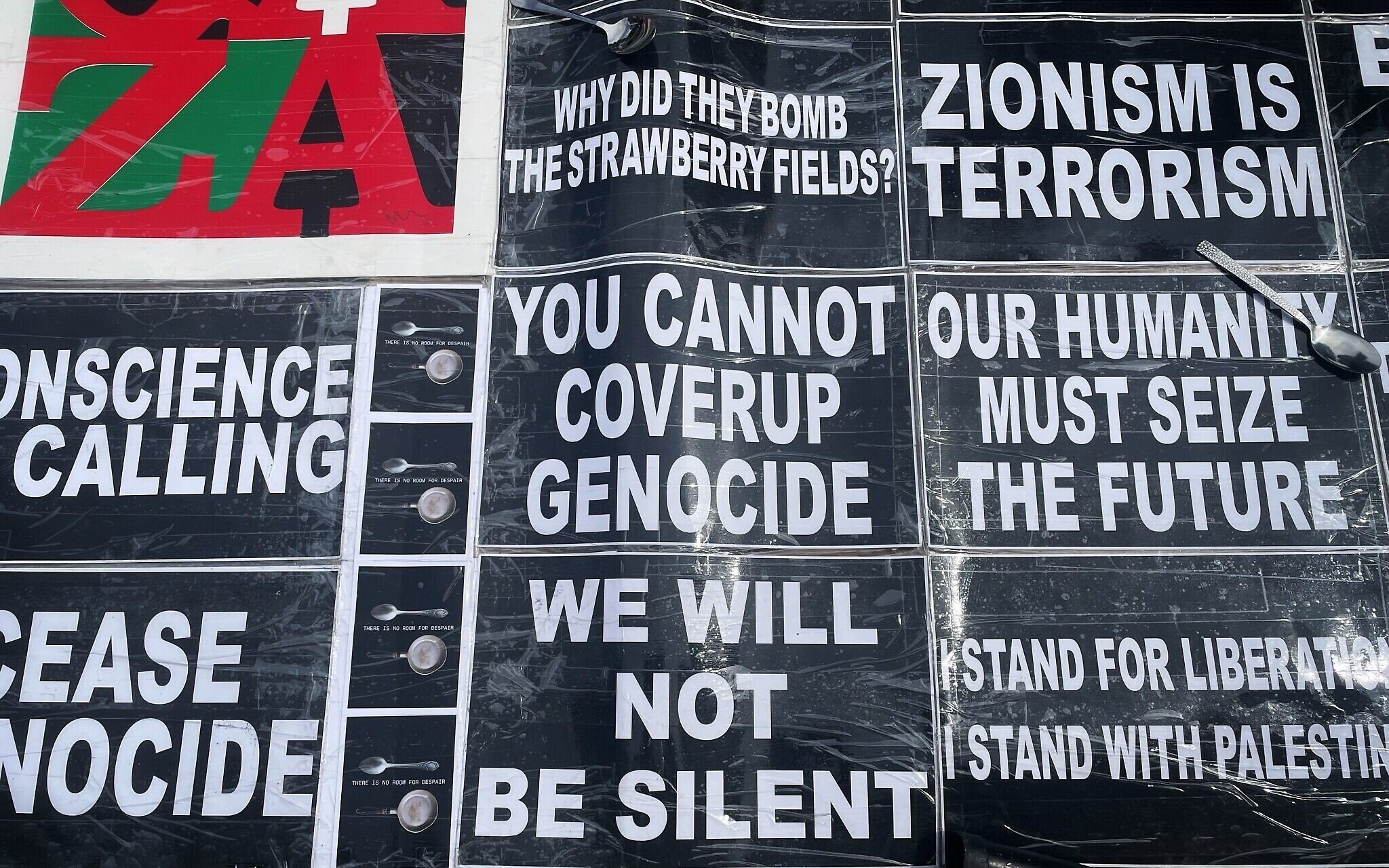



Pro-Israel activists on Wednesday joined the International Association of Genocide Scholars after the group accused Israel of genocide, highlighting the fact that non-scholars can join the group.
The association charged Israel with genocide on Monday, saying in a resolution that “Israel’s policies and actions in Gaza meet the legal definition of genocide.”
The announcement garnered widespread media coverage that portrayed the group as a prestigious body of experts.
“Israel committing genocide in Gaza, world’s leading experts say,” the BBC said in its headline. “Israel is committing genocide in Gaza, leading scholars’ association says,” The Washington Post reported.
The New York Times described the group as “a leading group of academic experts” and a spokesperson for United Nations Secretary-General António Guterres described the association as “a very prominent and serious organization.”
Pro-Israel activists later discovered that anyone can join the group by paying as little as $30, though. The group’s website says it is open to individuals including activists and artists, and scholars in unrelated fields, such as film and literature.
A number of pro-Israel activists said they had joined the group, while others set up prank accounts.
One activist signed up as “Adolf Hitler” and is listed as an inactive member of the group and a part of the association’s women’s caucus and indigenous caucus. Others signed up as Star Wars characters or set up accounts for their pets.
One of the pro-Israel commentators who joined the association, Elliot Malin, is actually a legal expert, but said the association revoked his membership without explanation.
Malin is an attorney and the chairperson of the Nevada Governor’s Advisory Council on Education Relating to the Holocaust.
The new member profiles were initially labeled as “active members,” but later appeared to have been deactivated.
Asked about qualifications and how many members are accredited scholars, a communications officer for the association told The Times of Israel on Monday, “Our organization has always been open to academics as well as civil society practitioners, policymakers, and all sorts of other people who are invested in the research and understanding and the prevention of genocide.”
The communications officer on Wednesday referred The Times of Israel to other association representatives, who did not respond to follow-up questions.
Media reports about the resolution did not note that there were no qualifications for membership in the association.
The association appeared to have deactivated its public members directory on its website and its profile on X on Wednesday.
Pro-Palestinian activists were already members of the group. Nidal Jboor, the founder of the activist group Doctors Against Genocide, is a member of the association who said at an anti-Israel conference over the weekend that the anti-Israel movement needed to “take out” and “neutralize” its “child murderer” opponents, and hailed the “freedom fighters” of Gaza as “heroes.”
Before the Israel genocide vote, the association had around 500 members, but only 129 voted on the resolution, an amount that the group said was typical. Of those who voted, 89% voted in favor of the resolution.
The association did not release specifics about the vote accusing Israel of genocide, so it was not clear how many accredited experts participated.
The leadership of the association is made up of scholars working in the field.
After the vote passed, a longtime member of the association, Sara Brown, said the association was initially been made up of mainly scholars, but had opened its membership to non-experts, including activists.
She said that the expanded membership can be a strength by bringing in a diversity of viewpoints, but also “opens the door for something like this to happen,” referring to the Gaza resolution.
Brown also said that the association’s leadership had declined to hold internal debates over the resolution.
Emails shared with The Times of Israel showed that the association’s leadership in late July said there would be a town hall discussion to discuss the Israel resolution, “as with previous resolutions,” but backtracked days later, citing a vote by the association’s executive board.
The association also did not allow dissenting opinions to be published on its list serve, saying the list serve was not a forum for such discussions, and declined to release the names of the members who drafted the resolution, the emails showed.
Screenshots shared with The Times of Israel on Wednesday showed that the list serve was largely inactive. A post reminding members about the Gaza resolution vote had only been viewed 14 times.
A communications officer for the association disputed Brown’s account, telling The Times of Israel that the group had carried out the vote in accordance with its standard procedures and bylaws.
A press release by the association announcing the resolution on Monday said that the measure went through a peer review process and adhered to the group’s resolution requirements and by-laws.
The association’s president, Melanie O’Brien, said in a Monday statement that the resolution confirmed “that the majority of experts in genocide studies and prevention practice agree that Israel’s policies and actions in Gaza amount to genocide.”
The resolution noted that the October, 7, 2023, Hamas invasion of Israel “constitutes international crimes.”
Brown said on Wednesday that the association had not made any statements to members about the controversy.
Critics pointed to other alleged flaws in the resolution.
The association’s resolution cited as evidence reports by groups like Amnesty International that have reinterpreted the international legal definition of genocide in accusations against Israel.
The resolution also cited UN special investigator for the Palestinians Francesca Albanese, who has a history of antisemitism and extremist rhetoric, such as denying Israel’s right to self defense.
The Gaza resolution said that the International Court of Justice had ruled that it was “plausible” that Israel was committing genocide, an interpretation of the court’s findings that the former president of the court, who presided over the hearings, has said is false.
